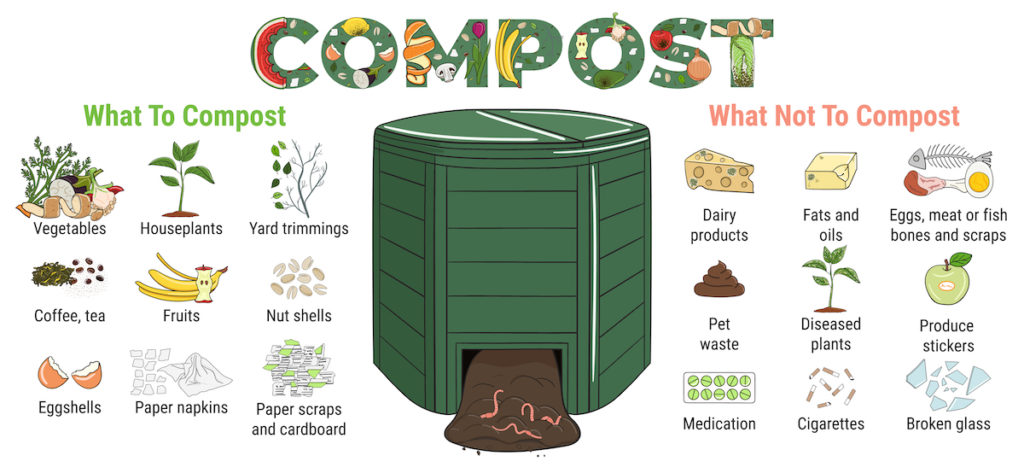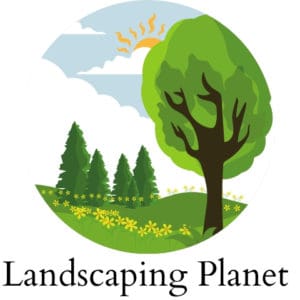Gardening is an exciting and rewarding hobby for people with a green thumb, but it can be frustrating for those without. Fortunately, you can deal with the challenge of growing amazing-looking plants by using fertilizer or compost. However, which one is better?
Fertilizer is better than compost in numerous ways, including convenience in handling and preparation, nutritional balance, cost-efficiency, and lack of potential disease-causing pathogens. In addition, there are many specially-formulated fertilizers on the market for specific plants.
This article will look into the different characteristics of commercial fertilizers and organic compost and weigh in on which one suits your garden’s needs best. Read on!
Fertilizer vs. Compost
Both fertilizer and compost provide essential nutrients and offer excellent support to plants as they grow. However, these nutrient sources also have some downsides. Let’s look at the comparison of some of their qualities below.
Fertilizers Are Easier To Prepare Than Compost
One of the significant differences between fertilizer and compost is how they’re prepared. Many new and passive plant owners don’t have much time to tend to their gardens and may look for an easier solution to their plants’ needs.
In this aspect, fertilizer clearly has an advantage. Here’s why:
Commercial, Inorganic Fertilizers Are Ready To Use.
They’re widely available at many gardening and online stores. Also, the preparation is pretty straightforward. You just need to follow the instructions in the packaging.
Most products indicate which plant they’re most suitable for. Whether you have indoor foliage plants, outdoor flowers, or turf grasses, you can find a specially-formulated product that can meet your plants’ needs.
Organic Compost Takes a Long Time To Prepare.
Most organic compost materials take several months to years to decompose and be ready for application into your soil. In addition, you have to check your pile regularly to ensure there’s enough moisture.
Overall, making compost is a tedious process, where you have to pay attention to the number of browns and greens. You’ll also need to consider the kind of materials you can and can’t add to the pile.

Fertilizers Have More Nutritional Balance Than Compost
One of the essential things to consider when choosing a nutrient supplement for your plants is balance. Not all plants have similar nutritional requirements. For instance, foliage plants need more nitrogen, while flowering plants need more phosphorus.
For nutritional balance, fertilizers have the upper hand. Here’s how fertilizers and compost compare:
Tip: I’ve written in-depth articles about why plants need nitrogen, phosphorus and potassium. Check them out!
Fertilizers Offer a Better Nutritional Balance
Typically, commercial fertilizers indicate the ratio of nutrients present. For instance, a 20-20-20 fertilizer contains 20 parts each of nitrogen (N), phosphorus (P), and potassium (K).
However, many plants need more than just these three nutrients. At the same time, some products indicate that they contain trace amounts of sulfur, calcium, magnesium, and more, but most products don’t. As a result, you may have to buy additional fertilizers.
Compost Contains a Large Variety of Nutrients That Plants Need
However, it isn’t easy to measure just how much of each is present in a batch of compost. It mainly depends on the kind of materials added to the compost pile and the chemical reactions they underwent.
During the decomposition process, compounds in organic materials are broken down into substances that the plants can consume. Generally, the amount of nitrogen and other essential nutrients present in the resulting compost isn’t enough.
Compost Is Not Always Safer Than Fertilizers
Also, an essential thing to remember when choosing between fertilizer and compost is its impact on plant and human health. Some substances added into the soil may cause serious health issues to both the plant and the gardener.
Here’s how fertilizer and compost compare in terms of safety:
Commercial Inorganic Fertilizers Generally Don’t Contain Disease-Causing Pathogens
They mainly contain minerals and inorganic compounds that are readily useful for plants to grow or bloom.
These fertilizers are often sterile and don’t cause health problems brought about by pathogens. However, volatile substances like ammonia gas from nitrogen-rich fertilizers can be dangerous when inhaled.
Fortunately, it’s easy to check the ingredients of fertilizers and take necessary precautions to protect yourself. There are also warnings on the package, indicating skin contact or inhalation risks.
Organic Compost Sometimes Contains Pathogens That May Be Harmful
For instance, a study found that harmful bacteria like E. coli can survive composting and pose some health risks.
Safe microorganisms normally initiate chemical reactions in the compost pile to break down toxic compounds into non-toxic substances. However, some pathogenic microorganisms may survive.
These pathogens may infect some edible plants that can cause serious medical complications to those who consume them. The worst part is that most people don’t have their homemade compost undergo composition analysis before applying them to the soil.
Compost Can Be More Expensive Than Fertilizers in the Long Run
When talking about price, most people assume that organic compost has the upper hand over fertilizers. However, that may not be entirely correct. Let’s discuss why:
- Commercial fertilizers may be costly at first, but you can save money in the long run. It’s because you often wouldn’t need to add more supplementary nutrients to your soil since the fertilizer already contains almost everything your plant needs.
- Organic compost may be free at first, but the number of nutrients present in compost may not be sufficient. As a result, you may have to buy commercial fertilizers to address some nutrient deficiencies in your garden. In addition, it takes a long time to prepare compost. Your plants may not be able to wait that long. While waiting for your compost to be ready, you may need to apply some fertilizers to your garden.
Compost Is More Eco-Friendly Than Fertilizers
While fertilizers clearly have an advantage over organic compost in the aspects mentioned above, the latter has a better environmental impact.
Fertilizers May Contain Excess Nutrients That May Leach or Contaminate Groundwater
For instance, nitrogen-rich fertilizers are major sources of nitrates in drinking water from private wells.
Washed off fertilizer substances may also go into natural bodies of water like ponds or rivers, posing some danger to living organisms, such as fish and tadpoles.
Compost Contains a Small Number of Nutrients That Bind to Organic Materials
This quality also helps make the nutrients readily available for the plants to absorb as they’re within reach of the roots.
Moreover, using organic compost can help reduce food waste and garbage from households. Although not all types of trash can go into the compost pile, it’s still a significant contribution to proper waste management and disposal.

